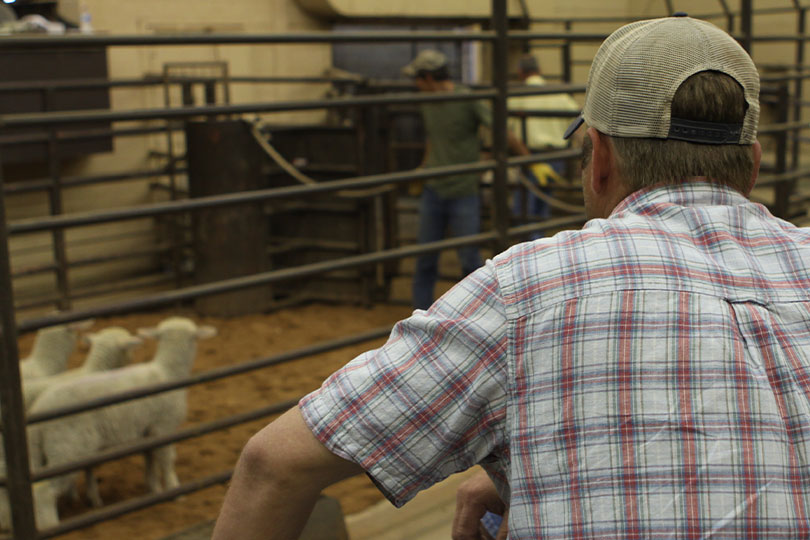By Emmy Powell
Communications Specialist
The drought’s impact this year extended to sheep and goat herds, leading to more livestock moving through sale barns in Texas.
Benny Cox, sheep sales manager for Producers Livestock Auction Company in San Angelo, told the Texas Farm Bureau Radio Network some of their summer sales had over 10,000 sheep and goats and took place over two days.
“People were forced to sell a good many, most of the ewe lambs, that they might’ve kept. They cut a little deeper into their ewe herd,” he said. “It also impacted the goat market, as well.”
The increase in summer sales is expected to impact the market and next year’s sales.
“It’s definitely going to have an influence on the market, especially in these kid goats,” Cox said. “We’ve sold a good many here lately percentage-wise, but I think we’re going to be shy of these kid goats. These hair sheep are amazing. They’re pretty prolific, and we keep seeing a lot of these lambs. The percentage of these hair sheep lambs by far well exceeds any wool lamb offerings.”
Cox remains hopeful range and pasture conditions will improve, which will keep the number of animals at the sale down. Their recent sales have had around 4,000 sheep and goats.
“They’re not seasonal breeders like your wool sheep, so we’re going to continue to see those,” he said. “I think that if we have really good range conditions through the winter and on into spring and have a really good summer, I think we’ll still be light of receipts through here because I think a lot of people keep replacement ewe lambs. And that’ll keep your numbers down lower than what we’ve seen this summer.”
Late rains this fall and early winter have brought sheep and goat producers some relief.
“We’ve had enough rain in this area, the bigger sheep-producing area, that we’re growing some sheep, goat and deer feed. It didn’t rain grass, so we’re still in trouble on our cow deal, but there’s a lot of people that they’ve sat back and took a breath and feel a little more comfortable than they did back earlier this year,” Cox said.
Cox looked back on the drought of 2011 and noted this year’s drought seemed to impact the industry more.

